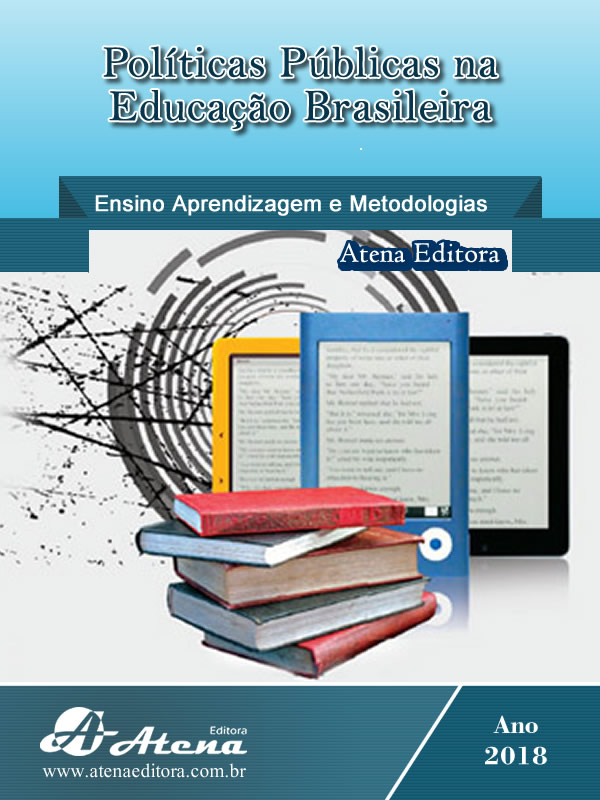
ENSINO DE QUÍMICA: DESENVOLVIMENTO DE EXPERIMENTO DIDÁTICO DE GALVANOPLASTIA UTILIZANDO MATERIAIS DE BAIXO CUSTO
O distanciamento entre teoria e prática pode ser indicado como um dos
responsáveis pela desmotivação de alunos nas aulas de Química. Os profissionais
de ensino, afirmam que este problema, quase sempre, é devido à falta de
laboratórios ou de equipamentos, inviabilizando a realização de aulas práticas.
Uma alternativa viável seria a montagem e utilização de experimentos feitos com
materiais de baixo custo. Neste sentido, o presente trabalho desenvolveu-se com o
objetivo de mostrar a relevância da adesão e utilização de atividades experimentais
no ensino de química, utilizando materiais de fácil acesso e de fácil manipulação.
Para isso, a pesquisa desenvolveu-se em duas etapas: na 1a etapa foi desenvolvido
e realizado um experimento envolvendo fenômenos da eletrólise, com uma turma
de 20 alunos do ensino médio do 2º ano pertencentes a uma unidade estadual de
ensino da rede pública do município de Castelo do Piauí-PI; na 2a etapa, aplicou-se
um questionário para verificar o grau de aceitação dos alunos em relação à
atividade experimental realizada. O experimento apresentou resultados
satisfatórios, pois a eletrodeposição total de cobre no objeto metálico ocorreu de
fato e não extrapolou o tempo de uma aula. Em relação à análise qualitativa dos
dados levantados a partir das respostas do questionário aplicado aos alunos,
mostrou-se que a utilização de atividade experimental como método alternativo de
ensino é bastante válida no complexo processo de ensino-aprendizagem, o que
vislumbra a possibilidade de implementação de experimentos alternativos simples
dessa natureza em práticas pedagógicas no ensino da Química.
ENSINO DE QUÍMICA: DESENVOLVIMENTO DE EXPERIMENTO DIDÁTICO DE GALVANOPLASTIA UTILIZANDO MATERIAIS DE BAIXO CUSTO
-
DOI: Atena
-
Palavras-chave: Aulas práticas. Eletroquímica. Eletrodeposição de cobre. Ensino de Química.
-
Keywords: Practical lessons. Electrochemistry. Electrodeposition of copper. Teaching of chemistry.
-
Abstract:
The distance between theory and practice can be indicated as one of the
responsible ones for the demotivation of students in the classes of Chemistry.
Teaching professionals say that this problem, almost always, is due to the lack of
laboratories or equipment, making it impossible to carry out practical classes. A
feasible alternative would be the assembly and use of experiments made with low
cost materials. In this sense, the present work was developed with the purpose of
showing the relevance of the adhesion and use of experimental activities in the
teaching of chemistry, using easily accessible materials and easy manipulation. To
do this, the research was developed in two stages: in the first stage an experiment
was developed and carried out involving phenomena of electrolysis, with a group of
20 high school students of the 2nd year belonging to a state unit of education of the
public network of the municipality of Castelo do Piauí-PI; in the second stage, a
questionnaire was applied to verify the degree of acceptance of the students in
relation to the experimental activity performed. The experiment presented
satisfactory results, since the total electrodeposition of copper in the metallic object
occurred in fact and did not extrapolate the time of a lesson. In relation to the
qualitative analysis of the data collected from the answers of the questionnaire
applied to the students, it was shown that the use of experimental activity as an
alternative method of teaching is quite valid in the complex teaching-learning
process, which envisages the possibility of implementation of simple alternative
experiments of this nature in pedagogical practices in the teaching of Chemistry.
-
Número de páginas: 15
- ANTONIO ZILVERLAN GERMANO MATOS


